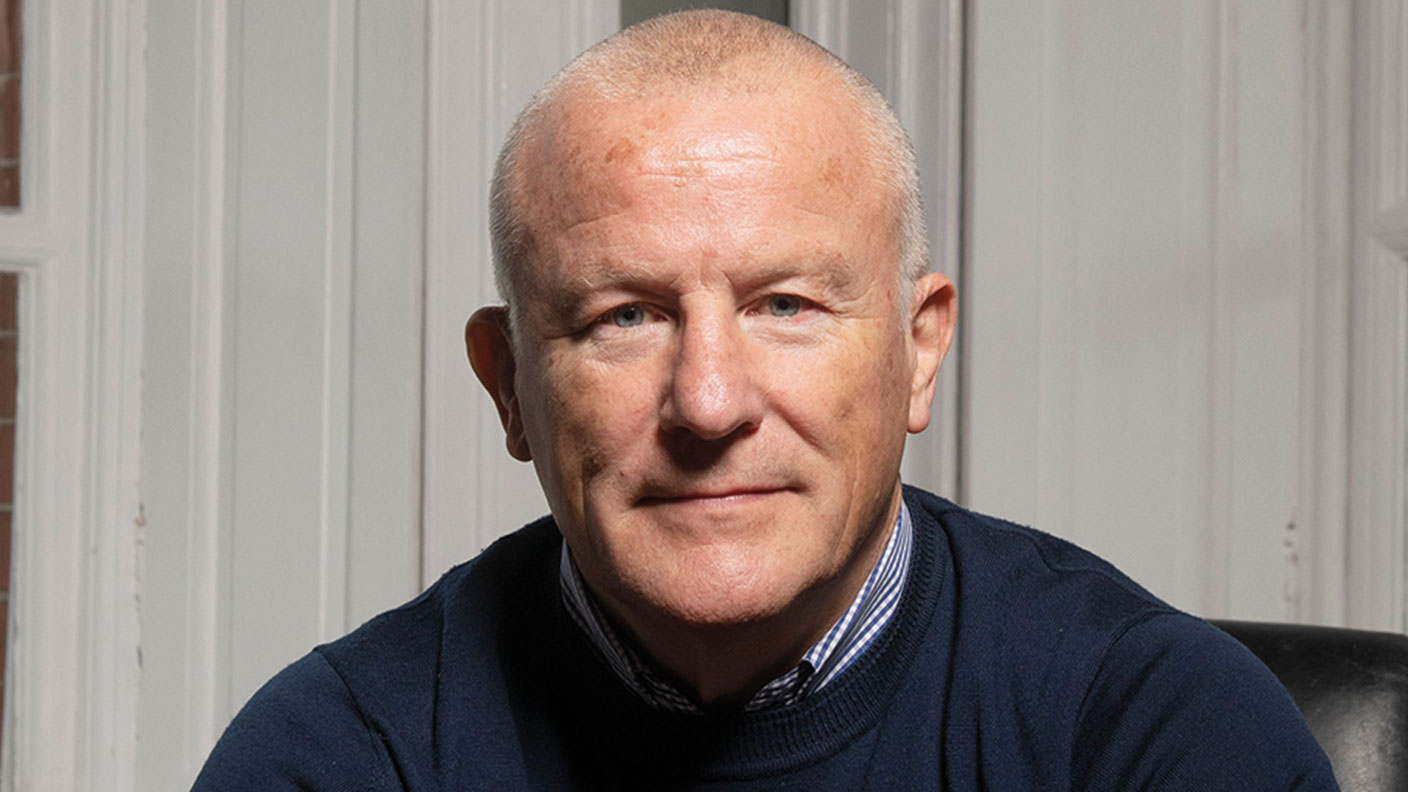Neil Woodford doesn’t deserve your sympathy – his troubles are all his own fault
Some people think Neil Woodford has been an unfortunate victim. But he’s no such thing, says Merryn Somerset Webb. He broke some of fund management’s most fundamental rules and his investors are paying the price.

Get the latest financial news, insights and expert analysis from our award-winning MoneyWeek team, to help you understand what really matters when it comes to your finances.
You are now subscribed
Your newsletter sign-up was successful
Want to add more newsletters?

Twice daily
MoneyWeek
Get the latest financial news, insights and expert analysis from our award-winning MoneyWeek team, to help you understand what really matters when it comes to your finances.

Four times a week
Look After My Bills
Sign up to our free money-saving newsletter, filled with the latest news and expert advice to help you find the best tips and deals for managing your bills. Start saving today!

There are rules in fund management. You learn them pretty early in your career. They aren't complicated, but they are important. Don't take on too much money, particularly in small-caps. Don't think it's all about you. Don't mix or dramatically change styles. Don't own too many illiquid stocks. Don't overtrade. You can, of course, break these rules all good stockmarket stories come with a maverick. But that simply makes the last rule the most important: if you break the rules, don't mess it up. Because almost all bad stockmarket stories also come with a maverick who messed it up.
And so to Neil Woodford. In 2014 he branched out from a much-feted career at Invesco to launch a new company with the backing of his supporters at Hargreaves Lansdown, the UK's biggest investment platform company, and St James's Place. The hype was huge. Woodford launched an investment trust, Patient Capital, with the idea of investing in small and exciting companies to hold for the long term, an Equity Income Fund, an Income Focus Fund and a super snazzy website with lots of stuff about him on it ("widely regarded as one of the finest investors of his generation", etc, etc).
The trust aimed to raise £500m at launch. It raised £800m. The share price instantly went to a double-digit premium (despite being mostly cash). The Equity Income fund took in something in the region of £10bn, with clients of Hargreaves Lansdown among the most enthusiastic of buyers. How everyone loved Neil.
MoneyWeek
Subscribe to MoneyWeek today and get your first six magazine issues absolutely FREE

Sign up to Money Morning
Don't miss the latest investment and personal finances news, market analysis, plus money-saving tips with our free twice-daily newsletter
Don't miss the latest investment and personal finances news, market analysis, plus money-saving tips with our free twice-daily newsletter
What Neil Woodford got wrong
They don't love him any more. Patient Capital is trading close to its lowest price ever (77p against a launch price of 100p and on a discount of 14% to its stated net asset value per share). The Equity Income Fund is down to a mere £3.7bn a number it is only hanging on to by refusing to let anyone else take their money out. The fund is now suspended.
So what brought "one of the finest investors of his generation" down to earth? Breaking every single one of the basic rules. Woodford took too much money too fast; he believed his own hype, forgetting that the team around him at Invesco and in particular its risk management and compliance controls might have been helping him out.
But, worst of all, he both mixed and changed styles. The market has been tough for long-term value and income investors in the past, but it has usually come good (this is a cycle Woodford has been through before). It might take longer this time around, since the growth of the passive investing industry could be delaying the usual mean reversion, but it will still happen.
So, had he stuck to what he knew, Woodford might have found that after a few uncomfortable years he was once again known as Britain's finest. He hasn't stuck to it. Instead and this is the style change bit he reinvented himself as a small-cap and unquoted-company investor.
This must have sounded fabulous at the bandwagon-jumping business development meetings. We know that public markets are stagnating the number of listed companies in the US has fallen by 50% since 1997 and that the real growth is now considered to be off market.
But we also know, so far at least, that this is not where Neil Woodford's skills lie. We have, as far as I know, no broken-out performance record for his dabbling in it at Invesco; and his many choices since 2015 have not exactly covered him in glory. Investing in private companies might be fashionable at the moment, but it is also a very specialist and not particularly transparent business one in which other people have an awful lot more experience than him. Woodford's website promises "Expertise. Reinvented." Maybe we didn't need the reinvented bit.
Illiquid assets Woodford's biggest sin
But style change is not the worst of his sins. Patient Capital is a long-term vehicle designed to hold the kind of assets that may or may not come good ten years out. If a couple of the firm's punts turn out to be genuine winners it might work.
I'm not a buyer of it at its current discount levels simply because it is hard to have the faintest idea what the real net asset value is. Valuing illiquid unquoted companies falls somewhere between being an art and a fantasy. Maybe we should look again when the discount hits 30%. The Income Focus Fund, which seems to represent a memory of the old Woodford, may also come good.
The Equity Income Fund is a different matter. It should not, as its name suggests, contain anything other than solid income-producing stocks or, as the website has it, "quality companies that can deliver sustainable dividend growth". Instead, Mr Woodford has chucked much of his cool unquoted stuff in here too, hence breaking two rules at once: don't mix styles and don't hold too many assets you can't sell in a hurry.
It is this lousy mix of bad fund structuring, style drift and inadequate risk management that led to the suspension of the fund. He holds too many small illiquid companies (and thanks to the raising of too much money, too much of each one) to be able to sell at a reasonable price when redemptions come in. Big mistake a reputation and business-destroying mistake, even.
There's one more rule I want to mention. Don't overcharge or at least don't be seen to overcharge. These days, the best managers cut and cut again, making a song and dance of it as they do so.
If Woodford were really hoping to hang on to any remnants of his reputation as a champion of the retail investors whose cash is currently locked in his failing fund, he would announce that the fees are to be slashed to zero at least until he hits a high-water mark particularly given the £36.5m dividend paid last year to Woodford Capital, controlled by him and his business partner. He hasn't.
A lot of people will tell you that Neil Woodford has been a victim. A victim of exchange traded funds. A victim of a growth-obsessed market. A victim of Brexit. A victim of overly prescriptive regulation. A victim of amateur investor panic. A victim of the media. But either way, he is a very rich victim indeed. And that is what sticks in the throat most about this sorry saga of mission creep, arrogance and ego. Someone's made a huge pile of money since 2014. You were told it could be you. It's actually been Neil Woodford.
This article was first published in the Financial Times
Get the latest financial news, insights and expert analysis from our award-winning MoneyWeek team, to help you understand what really matters when it comes to your finances.

-
 ISA fund and trust picks for every type of investor – which could work for you?
ISA fund and trust picks for every type of investor – which could work for you?Whether you’re an ISA investor seeking reliable returns, looking to add a bit more risk to your portfolio or are new to investing, MoneyWeek asked the experts for funds and investment trusts you could consider in 2026
-
 The most popular fund sectors of 2025 as investor outflows continue
The most popular fund sectors of 2025 as investor outflows continueIt was another difficult year for fund inflows but there are signs that investors are returning to the financial markets
-
 Neil Woodford’s back – but has he really learned anything?
Neil Woodford’s back – but has he really learned anything?Opinion Disgraced fund manager Neil Woodford is planning a comeback. But he doesn’t seem to have learned much from his many mistakes. So why would anyone invest with him now?
-
 Neil Woodford’s back – but sometimes sorry isn’t enough
Neil Woodford’s back – but sometimes sorry isn’t enoughAdvice Neil Woodford’s funds blew up in 2019. Now he is on the comeback trail. But his apologies are unconvincing.
-
 Woodford investor? Your first payment is coming soon
Woodford investor? Your first payment is coming soonNews Private investors left stranded by the collapse of the Woodford Equity Income fund will soon be getting at least some of their money back. But they will have to wait a while longer to see how much more – if any – they will receive.
-
 Neil Woodford continues to cast a shadow over his successor at Invesco
Neil Woodford continues to cast a shadow over his successor at InvescoFeatures Mark Barnett, former star manager Neil Woodford’s successor at Invesco, has applied the same formula, and is struggling.
-
 Is it time to buy Patient Capital Trust?
Is it time to buy Patient Capital Trust?Features Neil Woodford’s Patient Capital Trust has been taken over by asset manager Schroders. The share price has surged - but should you buy in? John Stepek looks at the trust’s prospects.
-
 Neil Woodford: no silver lining for his investors
Neil Woodford: no silver lining for his investorsEditor's letter Neil Woodford made every mistake it is possible to make as a money manager. And his investors have been stiffed. But however wrong it all went, Woodford never stopped taking the fees.
-
 Woodford believed his own hype – now his investors are paying the price
Woodford believed his own hype – now his investors are paying the priceFeatures Neil Woodford was once one of the brightest stars in Britain’s investment firmament. Then he came crashing down to earth. John Stepek explains what went wrong.
-
 Woodford’s empire collapses – what happens to his investors now?
Woodford’s empire collapses – what happens to his investors now?Features With Neil Woodford getting his marching orders and his funds being shut down, John Stepek explains what it means for his former empire, and for those with money locked in.